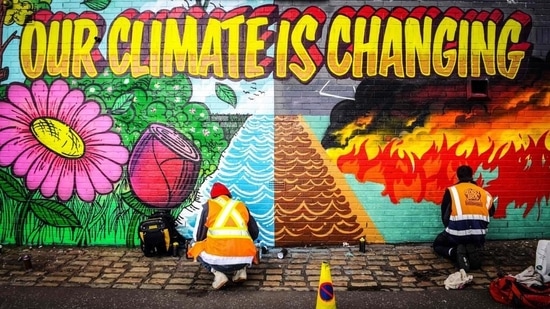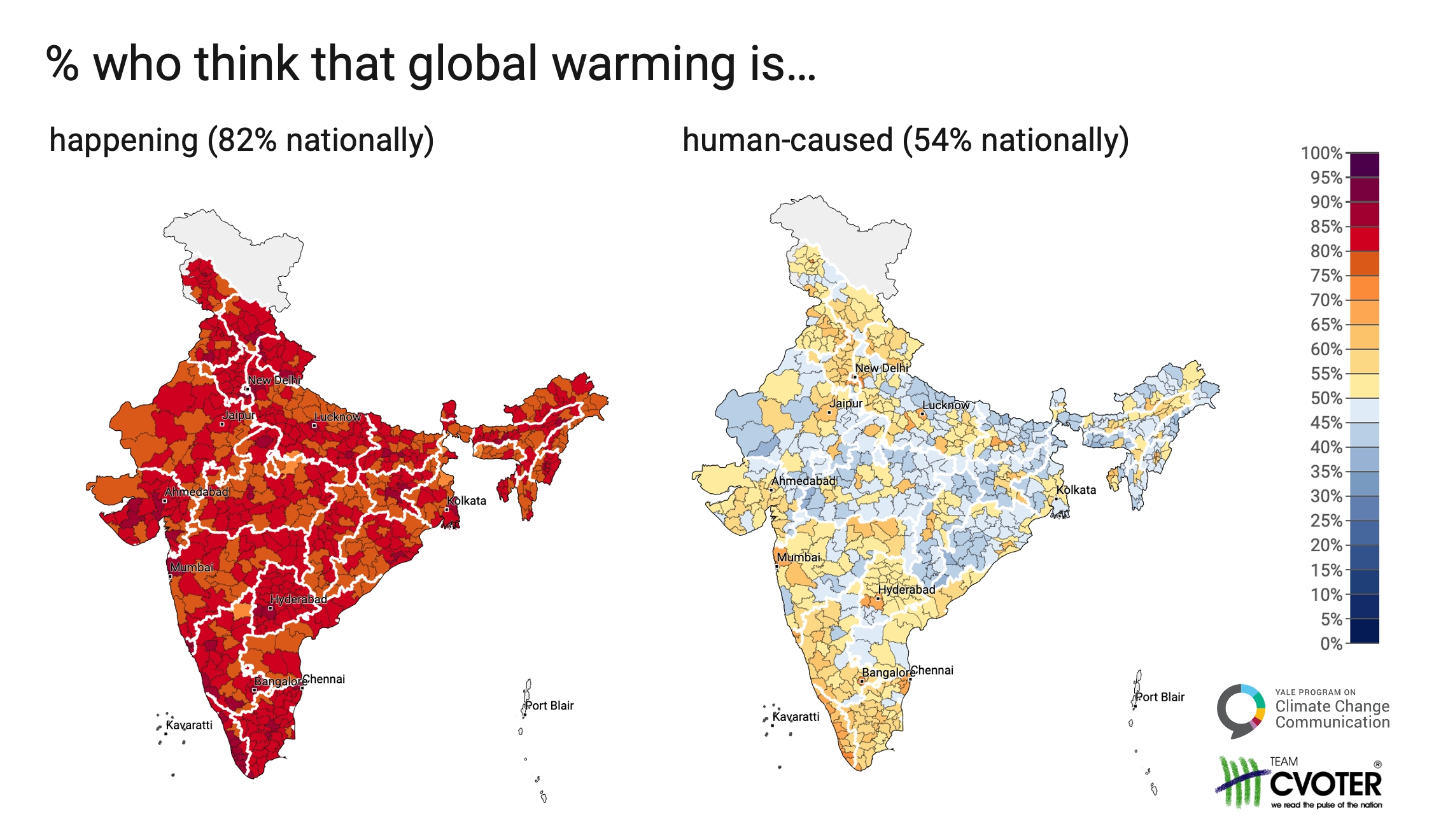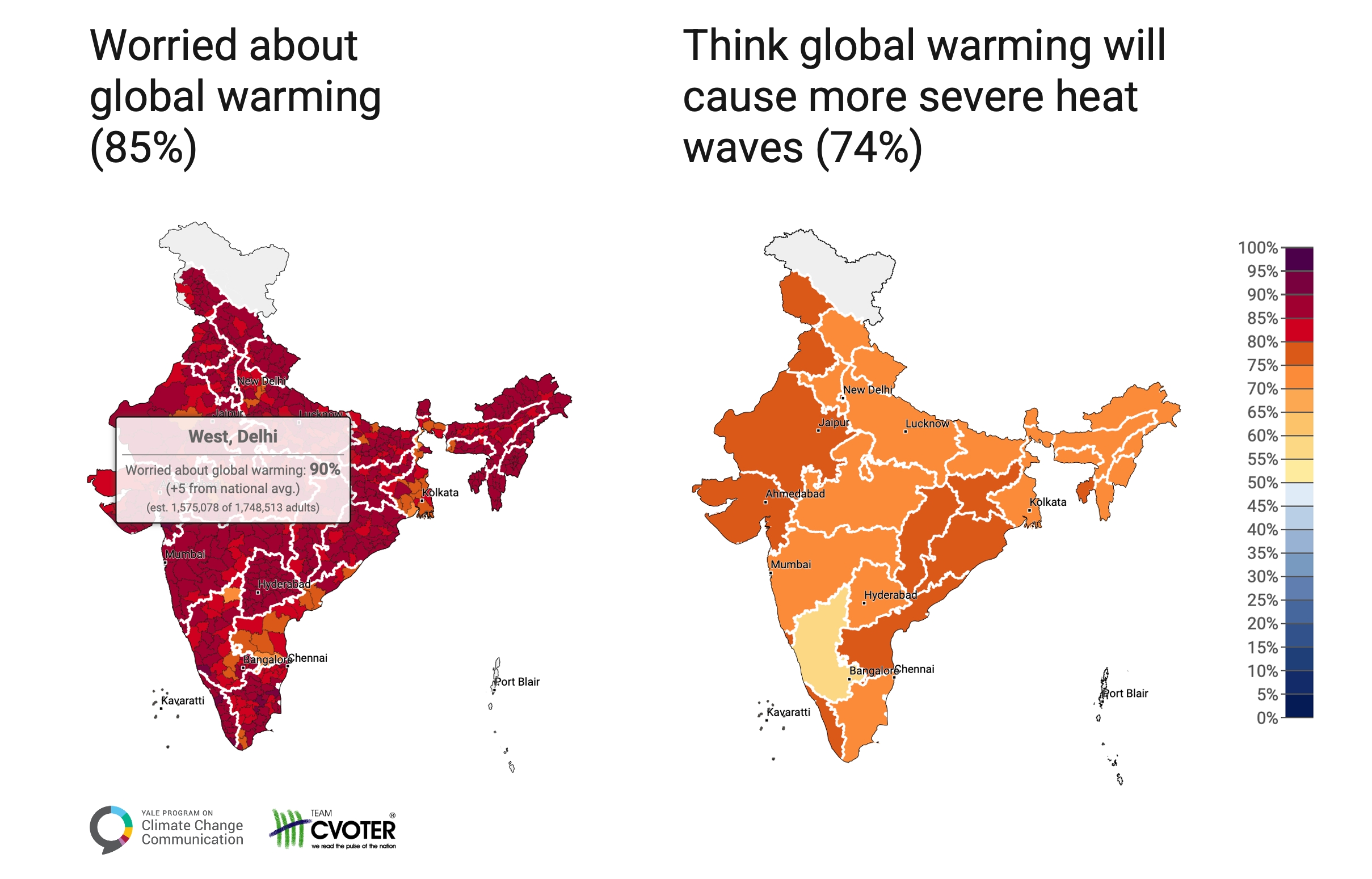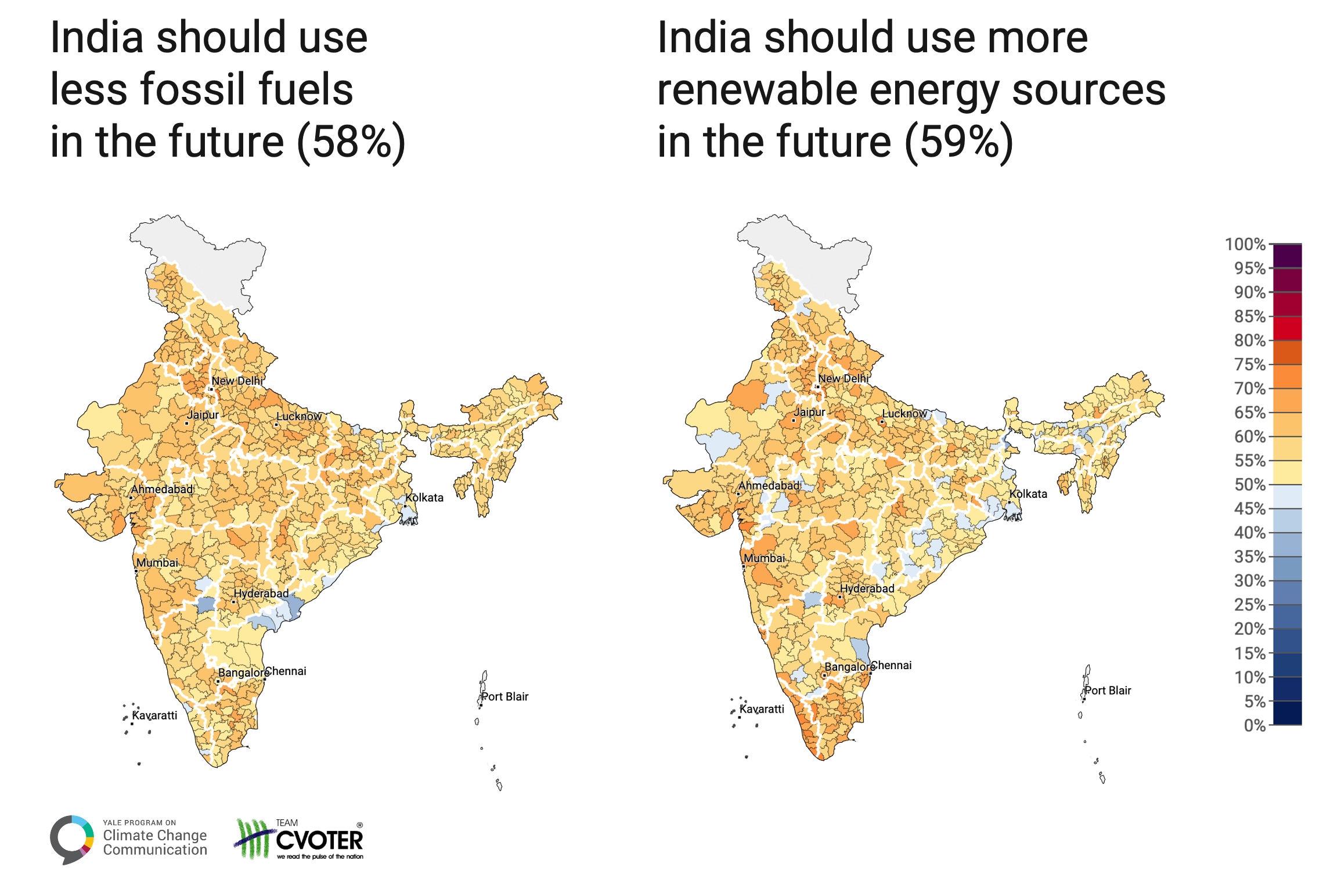Over three-quarter Indians acknowledge the personal impact of global warming: Study
As India confronts the escalating challenges of climate change, the urgency to grasp public sentiment and awareness has never been greater.
A new survey by national and international researchers has revealed that 78% of Indians have directly experienced the impacts of global warming (varying across states with the highest 90% in Haryana and the lowest 49% in Andhra Pradesh), highlighting the nation’s vulnerability and the urgent need for informed policy action.

While 82% of respondents at the national level believe global warming is happening, only 54% attribute it primarily to human activities rather than natural changes. The majority of respondents across states were concerned that global warming would lead to more severe cyclones, droughts, and water shortages, calling for the need for effective climate strategies.
Under the Paris Agreement guidelines, countries are required to update or submit new Nationally Determined Contributions (NDCs - targets and strategies for reducing greenhouse gas emissions and adapting to climate impacts) every five years, meaning that India and other nations are expected to revise their NDCs again by 2025 following the 2022 update.
India is also revising its National Action Plan on Climate Change (NAPCC) while all 29 states are updating their State Action Plans on Climate Change (SAPCCs) to better integrate climate concerns into government planning and address the increasing impacts of climate change on sectors such as water and agriculture.
Insights from the Yale Program on Climate Change Communications' report - Variations in Climate Opinions Across India - released on August 6, offer a roadmap. These findings are essential for aligning strategies with the public's shifting concerns, ensuring that policies resonate with the evolving priorities of citizens in the face of the devastating impacts of climate change.
“India has long been a key player in international climate negotiations and has begun implementing a diverse portfolio of policies nationally and within individual states to improve energy efficiency, develop clean energy sources, and prepare for climate change impacts. However, the effectiveness of these policies largely depends on the awareness and engagement of citizens,” said Jagadish Thaker, co-author and affiliate researcher with the Yale Project on Climate Change Communication.

Along with Thaker, authors include Jennifer Marlon, Anthony Leiserowitz, Emily Goddard, Liz Neyens, Swetha Kolluri, Seth Rosenthal, Jennifer Carman and Naga Raghuveer Modala, all associated with the Yale Project on Climate Change Communication.
Thaker highlighted the significance of public sentiment in shaping climate policies. “In our research, we found that Indians not only perceive a high degree of vulnerability to climate change impacts but are also strongly supportive of ambitious climate action. This strong public backing could significantly influence the scope and ambition of government policies,” he said.
India climate opinion maps
The survey, supported by CVoter, spanned 34 states and union territories, covering 539 districts. The data, compiled between October 2021 and November 2023, included a combined sample size of 6,797 respondents. The survey represented 58.8% responses from rural areas, 11.4% from tier II and III cities, and 29.8% from urban areas. It was accompanied by the release of an interactive tool - the India Climate Opinion Maps. “These high-resolution datasets provide detailed insights into the beliefs, experiences, risk perceptions, and policy preferences of India's adult population at national, state and district levels,” said Thaker.
A recent report by IPE Global shows that over 84% of Indian districts are now prone to extreme heat waves, with 70% of these districts also experiencing increased frequency and intensity of extreme rainfall events, particularly evident over the past decade. Severe socio-economic and environmental consequences are expected if current trends continue, potentially affecting eight of 10 Indians by 2036, the report said.
The Yale analysis revealed that while 85% of Indians expressed concern about global warming, slightly fewer—74%—associate it with more severe heatwaves. “These maps offer a detailed view of how climate change perceptions differ across regions, providing valuable data for tailoring climate communication and policy efforts to specific areas,” added Thaker.
The maps illustrate national, state and district-level variations in the percentage of people’s risk perception of global warming. An estimated 78% of adults believe global warming will harm future generations while 70% expect more severe cyclones, 67% foresee increased droughts and water shortages, 64% anticipate more famines and food shortages in the next 20 years and 61% think global warming will lead to more severe floods over the same period.

Key findings and disparities across regions
Meanwhile, there were notable regional differences, according to the survey, with higher risk perceptions in states such as Kerala, Goa, and Punjab, compared to states such as Karnataka and Tamil Nadu. Even within states, the disparity was visible.
More Indians living in state capital cities said ‘they know a lot or something about global warming’ compared to other districts. For example, 88% of respondents in the Mumbai district said global warming was happening and a matter of concern, compared to only 77% in the Maharashtra state overall.
Similarly, while 52% of people in Gujarat claim to know a lot or something about global warming, only 33% in Maharashtra report the same level of awareness. Overall, 41% of Indians nationally said ‘they know a lot or something about global warming’.
“There is a visible gap between public understanding of the causes of climate change and the international scientific consensus, with districts such as Thiruvananthapuram in Kerala showing higher levels of understanding compared to districts like Kheri in Uttar Pradesh,” said Thaker.
The disparities extend beyond regions to socio-economic and educational differences. Indians with higher levels of education and income, particularly those living in urban areas, are more likely to be aware and concerned about climate change, according to the analysis. “In contrast, individuals in semi-urban and rural areas, with lower levels of education and income, tend to be less engaged with the issue,” said Thaker.

Policy implications and recommendations
Survey responses from 98% of districts indicate that nearly 60% of Indians believe the country should reduce fossil fuel use, with majorities in all but 16 districts supporting this view. Similarly, 59% of respondents said India should increase its use of renewable energy.
India has committed to achieving net-zero carbon emissions by 2070, with a goal to have 50% of its electricity generation capacity from non-fossil fuel sources by 2030. The country is also aiming to install 500 GW of renewable energy capacity by 2030, having already reached approximately 190 GW in 2024, making it one of the top five countries globally in renewable energy capacity.
The Yale study underlines the importance of cultivating public acceptance and demand for climate policies, as public sentiment can shape the scope and ambition of government actions on climate issues. “Effective communication and education strategies tailored to what Indians already know, believe, and support are necessary to foster this acceptance and drive climate action at the grassroots level,” said Thaker, adding, “There is a need for localised education and outreach campaigns that can bridge the awareness gap and engage a broader section of the population in climate action.”
Public participation is the cornerstone of India’s climate action strategy, the Union environment ministry said. “For any strategy, we are engaging communities at every level, right from the village/panchayat, block, and district levels to ensure our efforts are inclusive and resonate with the aspirations of every citizen. This approach aligns with the vision of Atmanirbhar Bharat, where a self-reliant India not only leads in sustainable development but also empowers citizens to be active contributors,” said a senior official from the ministry of environment, forest and climate change, requesting anonymity.





